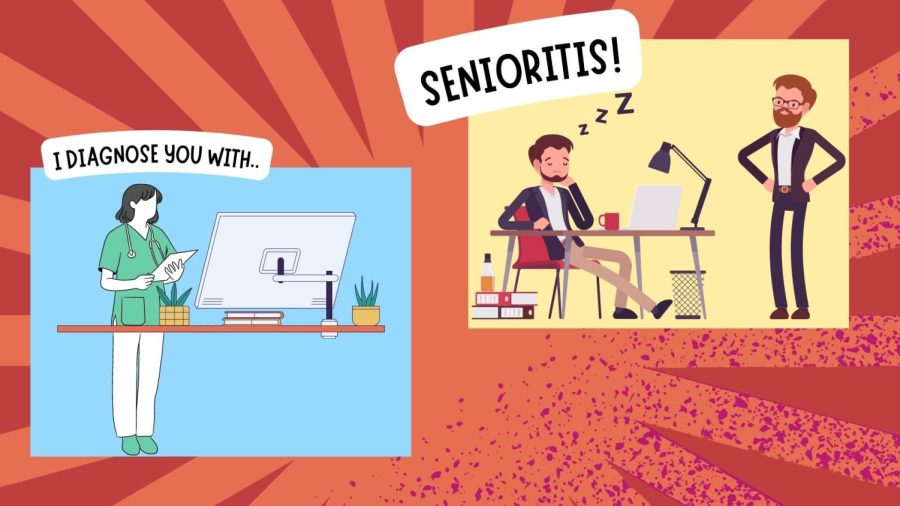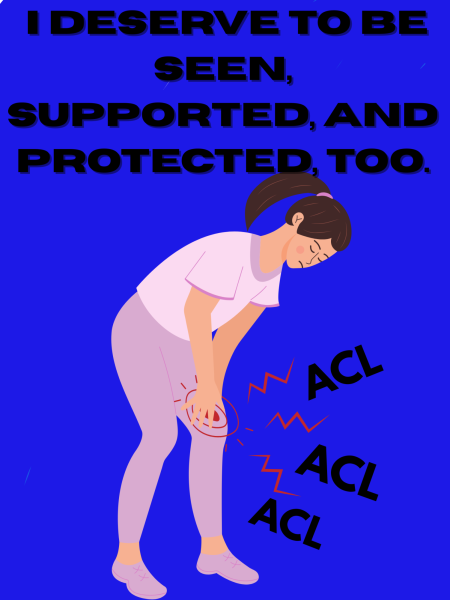Can you cure Senioritis?
Although Senioritis is not technically a real medical issue, many high school seniors will still claim that the symptoms of senioritis are very real!
Are you a senior that is suffering from a lack of motivation? Are you starting to feel homework has become “optional?” Are you already on your last mental health day of the semester because you have ditched school one too many times?
I am no doctor, but if you answered “yes” to all of the questions above, you may be suffering from a mild case of “senioritis.”
I remember at the beginning of the year, my dad told me: “Don’t get senioritis.” Seems easy, right? With a full course load, college applications and a plethora of extracurricular activities to keep me busy, I felt like it was impossible for me to not care about my academic endeavors.
But flash forward to April, and senioritis hit me like a brick. Don’t get me wrong, Dad, I still do my work, but there is no point in me going the extra mile anymore, even if my ego says otherwise. After all, I already know where I am spending my next four years, so what’s the point in trying anymore if it doesn’t serve me for my future academic endeavors? This is the true reason why seniors suffer so much from a lack of motivation: All work right now feels like “busy work.” There is no incentive to do any of the work, so why would we waste our time on something so pointless?
According to The Scholarship System, senioritis, although not a legitimate medical diagnosis, shares many symptoms with academic burnout. Many highschoolers devote a lot of their time, energy and effort into getting into a good college, or positioning themselves for a successful post-high school life. Once that goal has been achieved, once the external validation work in high school has been rendered useless.
But on the flip side, there is an underlying danger to this mindset that “nothing you do during second semester matters.” Your colleges (and maybe external scholarships) still want you to perform well in your classes, otherwise, there is a chance that you could get rescinded. Additionally, it says a lot about who you are as a person if you quit all of your extracurriculars after you already commit to a school. Extracurriculars are meant to be vessels to help pursue your passions, not golden tickets into college.
Ultimately, in my opinion, there is no “real cure” to senioritis without having to take an extensive step back from your academic life. I have always been the type of person to give it my all during the last portions of, what seemed like to me, “marathons” (e.g. last lap in the mile, last major assignment, last test), but as of right now, I realized that I don’t need to go to extensive lengths. Trying to become engaged in topics that I am passionate about while also finding some meaning in some of the work I have been doing helps a lot (but alas, counting down the days till that class is over also helps too!).
Additionally, getting too caught up and forgetting to have fun also contributes to burnout, a harsh lesson I had to learn last semester. I was so preoccupied with getting the best grades and getting into the best schools that I forgot to live in the present moment, and thus, caused a dampness in my social life. Spending time doing other things, not beating myself up for “not sticking to the schedule” and having a healthy balance in my life has also helped mitigate some of the burnout that can be felt with senioritis.
So to my 23niors, although you should definitely still do enough schoolwork to earn passing marks, I also encourage you to spend the last month-and-a-half of your high school careers having fun and making the most of it. Talk to that person. Wear that new outfit you have been self-conscious about. Reconcile with someone whom you haven’t talked to in a while. You are only 18 once.

Olivia (Liv) Frey is the Editor-in-Chief and Opinion Editor of North Star News. Ever since joining NSN her freshman year, she has grown a deeper love...








Cynthia Fey • Apr 20, 2023 at 12:00 pm
I love that last paragraph! I love “23niors”! I love this advice: “Spend the last month-and-a-half of your high school careers having fun and making the most of it. Talk to that person. Wear that new outfit you have been self-conscious about. Reconcile with someone whom you haven’t talked to in a while.” TRUTH